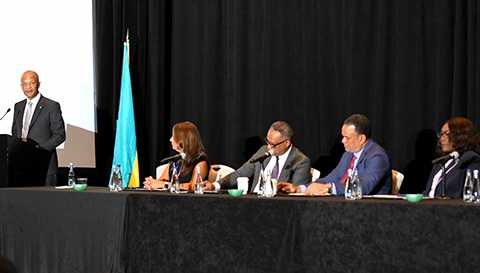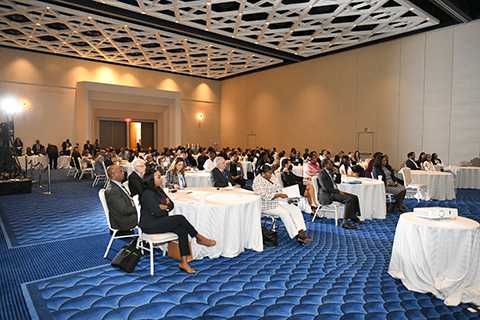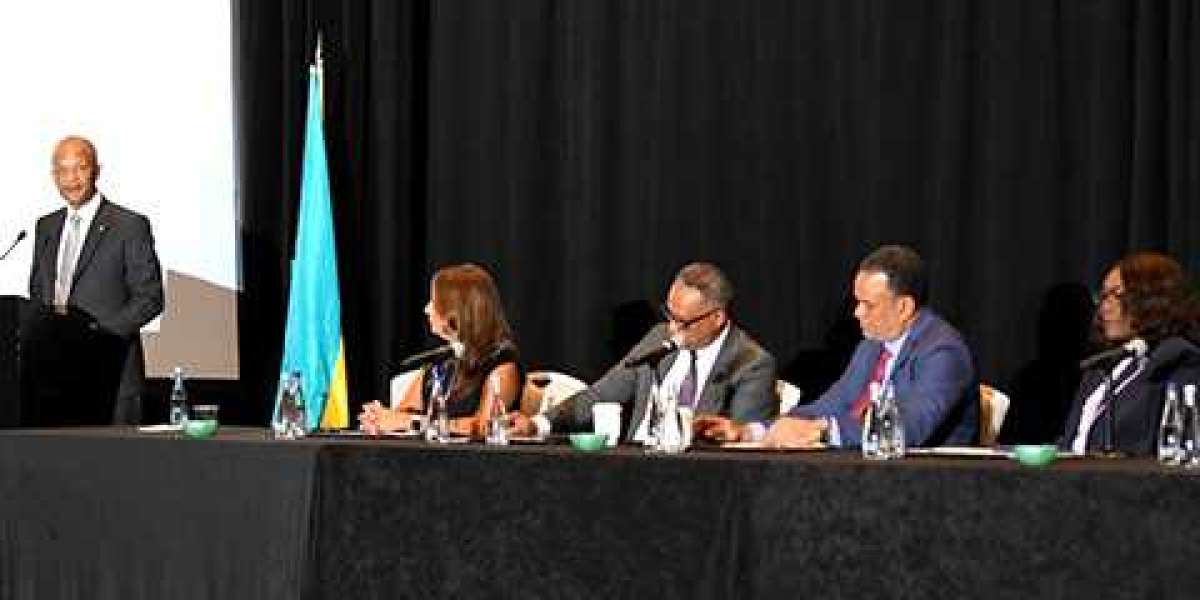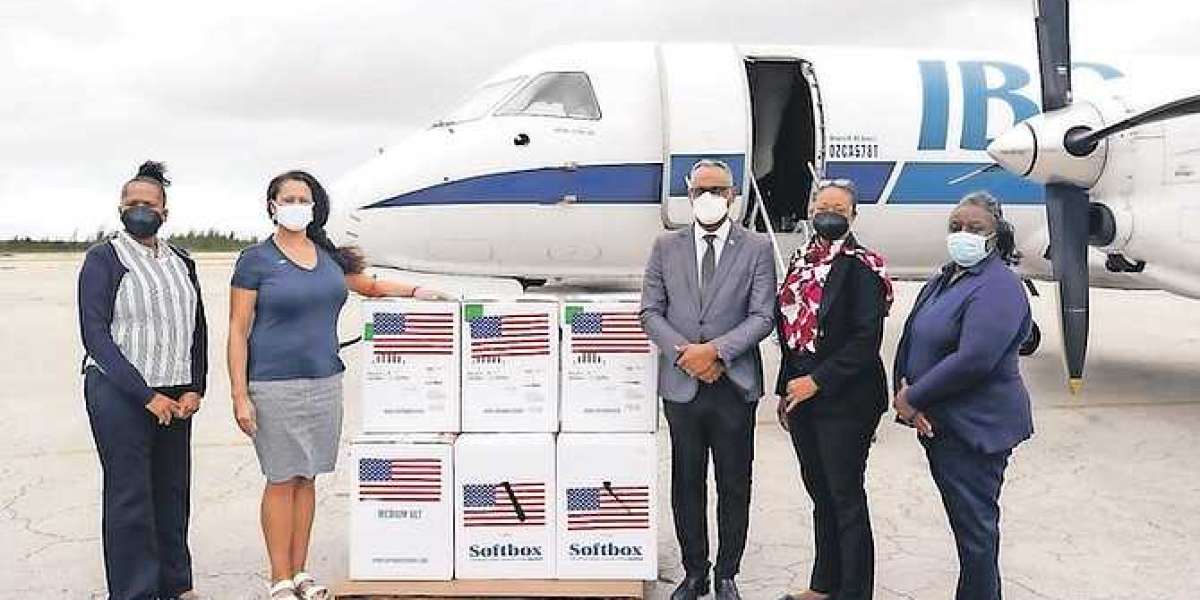| Authored by: | Bahamas Information Services |
| Source: | Bahamas Information Services |
| Date: | January 19, 2023 |
NASSAU, The Bahamas – The Government’s push towards greater climate change action in-country will help to address the consequences of climate change Small-Island Developing States such as The Bahamas can face, Minister of State in the Office of the Prime Minister with responsibility for Disaster Risk Management/Risk Reduction, the Hon. Myles LaRoda said Thursday. Those consequences can cut across a number of sectors of society.
Addressing the Opening Session of the Inter-American Bank’s (IDB) Symposium on Climate Change and the Importance of Disaster and Health Risk Management in The Bahamas held at the Baha Mar Resort, State Minister LaRoda told his audience that rising sea levels and more intensified hurricanes as a result of climate change are also a “most significant worrisome new reality”, but one: “which we – with our collective experiences and expertise -- have to deal with.”
(Mr. LaRoda was one of four Government Ministers addressing Thursday’s Opening Session. The quartet was led by Prime Minister and Minister of Finance, the Hon. Philip E. Davis, K.C., who delivered the Keynote Address, and included State-Minister LaRoda, Minister of Health and Wellness, the Hon. Dr. Michael Darville, and Minister of Economic Affairs, the Hon. Michael Halkitis. Other speakers for the Opening Session included Daniela Carrera Marquis, IDB Country Representative; Mr. Tariq Alli, General Manager, IDB Caribbean Department (virtually) and Dr. Maria Woodside-Oriakhi, Vice-President of Academic Affairs, University of The Bahamas.
In an effort to “deal with” matters relating to Climate Change, the Government has undertaken a “whole-of-government approach” to address “these whole-of-government issues” which includes the establishment of a Climate Change and Environmental Unit in the Office of the Prime Minister that is designed “to support whole-of-government work on the issue of climate change,” and has made advocacy on climate change its number one issue with regards to foreign policy with Prime Minister, the Hon. Philip E. Davis, K.C., leading that advocacy at the regional and international levels.
Parliament also recently passed new legislation that will provide for a more effective and comprehensive Disaster Risk Management Policy and Framework through the establishment of the Disaster Risk Management Authority. The legislation will lead to the establishment of a singular entity that will place greater focus on all disasters and/or risks that could negatively impact the country – and not just hurricanes -- and will result in the use of more cutting-edge equipment, science, development of new ways of dealing with disasters, risk management, identifying recovery and mitigation and grant fund writing.
The purpose of the Act is to develop, promote and implement an approach to disaster risk management that is comprehensive and proactive in lessening the socio-economic and environmental impacts of disasters, including climate change. The Act focuses on reducing risk, including the risk of loss of life, health, physical integrity, economic disruption and damage to the environment and property, especially to those members of the population who are most vulnerable by reason of age, disability, poverty, lack of resources, physical displacement or gender. It aims to promote the involvement and participation of all relevant sectors and stakeholders, at all levels of the society.
Government officials say the Administration’s plans to transition the country to relying on renewable energy, and its plans to ensure health, climate and disaster are integrated into the national solutions to support the Bahamian people, are among some of the other measures undertaken.
State-Minister LaRoda said the events of September 1, 2019 are a reminder to us that we are indeed in a war to secure our nation’s sustainability and longevity. History, Mr. LaRoda said, will: “not judge us based on the strength and magnitude of these Tropical Cyclones, but on our response to ensure the sustainability of our nation for future generations.”
“To fight this battle, we must consider various measures to ensure our resilience in facing this new reality. In this regard, the Inter-American Development Bank is to be commended for spearheading the establishment of the Preparedness, Recovery and Reconstruction Country Team (P2R-CT) to enhance the government’s efforts in preparing for, responding to, and recovering from disasters through government policy initiatives.”
The (P2R-CT) was established to assist in the country to better respond to the challenges associated with the climate crisis, disaster risk management, health emergencies and disaster risks and to provide a more integrated approach to IDB’s interventions: it is one of several measures the Government has undertaken to address climate change.
Thursday’s Symposium, which focused on topics ranging from Integrated Risk Management, to Health Risk Management, Disaster Recovery, and Risk Communication, marked the beginning of yet another Technical Cooperation, State-Minister LaRoda said.
“These areas are relevant and timely in supporting the knowledge-base of all stakeholders,” Mr. LaRoda added.









